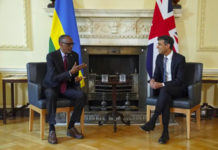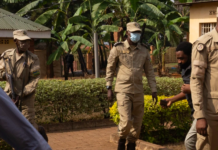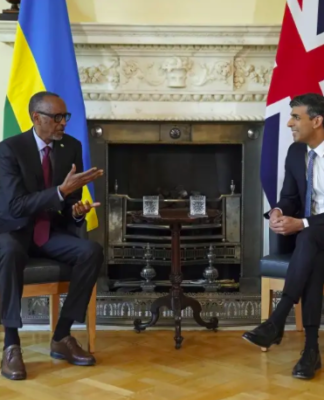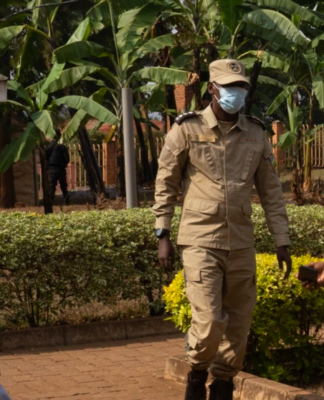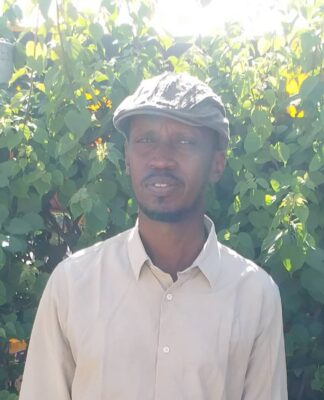Peace in Rwanda is largely spoken of by outsiders (foreigners) rather than insiders (Rwandan citizens). The truth is that Rwandans have known no peace since 1990 even though of late Rwanda has been praised because of its economic progress. Rwanda can be compared to South Africa which, during the apartheid era, had made its mark in economic growth.
Irrespective of economic growth, South Africa was characterized by all sorts of violence, from racial violence to state-sponsored violence. Black South Africans suffered from the ravages of apartheid. They fled South Africa in numbers and returned home after the country was liberated in 1994. Similarly, Rwanda is economically progressing but Rwandans are not free.
They are subjected to terror, fear and threats by their government that wants to defend the status quo. Until now many Rwandans continue to flee the country due to violence organised and supported by the government using its military formulations, including the Intore, Local Defense Force, Police Force, Directorate Military Intelligence (DMI), and Rwanda Defense Force (RDF). Rwanda is experiencing organized violence which is directly done by the state systematically to get rid of real and perceived critics and opponents on the one hand, and for ethnic cleansing on the other.
Violence is perpetrated with certain continuity against individuals and groups with different political attitude as well as an ethnical background. Several renowned human rights organizations have been recording the massive violation of human rights, including individuals subjected to torture (serious beatings, electric shocks and sensory deprivation), enforced disappearance, arbitrary arrest and detention, fabricated charges, force confessions to arbitrary detention. Since 2010, the Human Rights Watch (HRW) has documented a number of cases in which people are merely accused of being members or collaborating with opposition political parties, or are arbitrarily charged of threatening state security. There are some people detained incommunicado in military camps and these people are tortured and forced to confess to crimes and sometimes implicate innocent people.
When they are eventually brought to trial, some of the defendants tell judges that their confessions had been extracted under torture. However, in many cases, judges disregarded their claims and proceeded to convict them in the absence of any concrete On 8 October 2012, Amnesty International reported that scores of Rwanda‟s sons and daughters languished in incommunicado detention for months at different locations in the country including Kami barracks, Mukamira military camp, and in residential houses in the capital of Kigali. These innocent people were detained by Rwanda ‟s military intelligence known as “J2”.
Many of the young Rwandans who are forced to disappear are, according to the United Nations (UN) Reports, enrolled in military training to fight the proxy war in the Democratic Republic Congo (DRC), which left approximately 8 million Congolese and 300.000 Hutu refugees dead, and more than a million internally displaced. Detailed credible accounts of the recruitment of learners, students and prisoners against their will were documented by the UN. of international law.4 victims but also anguish and suffering to their families, relatives, and friends. It instills fear among the members of a targeted community.
Of great concern is new dimensions in the state-sponsored persecutions and massive violence committed against Rwandan population which are not merely idle but are intended and calculated to intimidate, put in fear, force the majority of population or a segment of dissents thereof, to abstain from exercising their civil and political rights. This brief intends to shed more light on the new patterns of terrorist acts and oppression perpetrated by the rulers (who supposed to protect their subjects) against the governed (the subjects) and to delineate the manner in which the Rwandan government commits crimes of apartheid. It is a barbaric act that does not only cause indefinable pain to the Forcing people to disappear is a punishable heinous crime in terms.
 RDTJ_Briefing_2014_11_07_17_23_02_439
RDTJ_Briefing_2014_11_07_17_23_02_439
Callixte Kavuro, Chairperson
Rwandan platform for Dialogue, Truth and Justice (RDTJ)
PO Box 31450 – Tokai, 7966
Cape Town, Western Cape
South Africa

